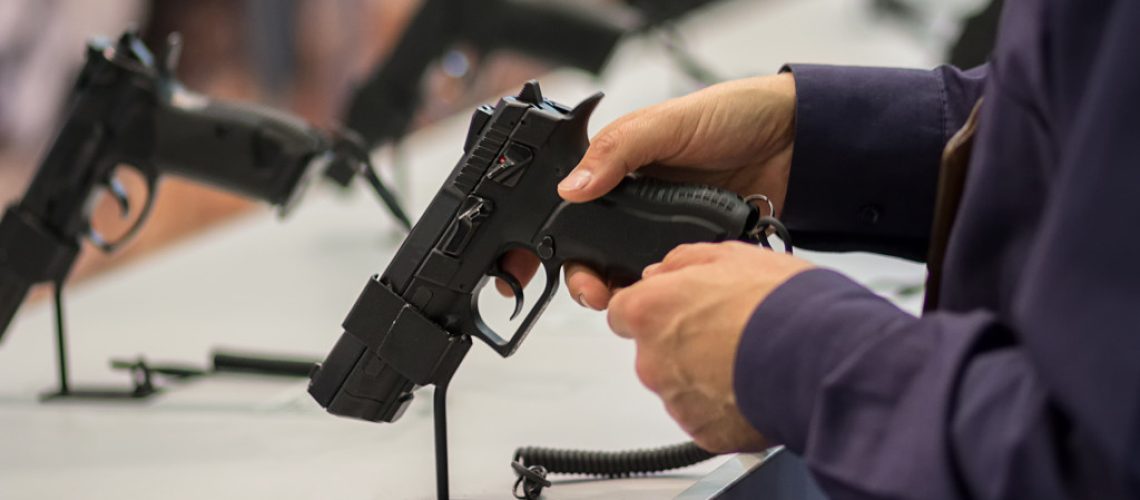- Adhering to rules and regulations is essential for gun store owners to comply with local, state, and federal laws.
- Gun store owners should provide safety training to customers on topics such as firearm use and storage, ammunition handling, and safe shooting practices.
- Gun shop owners must have the proper insurance to protect against potential liabilities associated with operating a store.
- Gun stores should also implement security measures such as surveillance cameras and locked display cases to deter criminal activity.
Opening a gun shop can be profitable for a variety of reasons, particularly when it comes to the second amendment. According to a 2018 Gallup poll, three in four Americans believe firearms ownership is “essential” or “important” for protecting their rights and freedoms. This high level of public support has enabled the firearms industry to grow significantly over the past decade.
In 2021, gun sales across the U.S. hit an all-time high, with background checks reaching their highest level in December. This is excellent news for prospective gun shop owners as it means strong demand for guns and related services exists. Additionally, owning a gun shop can be financially lucrative as firearms are relatively expensive, and customers often require additional items such as ammunition and other accessories to accompany their purchase.
However, gun stores have enormous responsibilities in plenty of areas when operating. Here are a few things gun store owners should prioritize when getting started:
Adhering to Rules and Regulations

Adhering to rules and regulations is essential for gun store owners. Failure to do so could lead to stiff penalties, including hefty fines, loss of license, and even imprisonment. It is, therefore, crucial for a gun store owner to be familiar with local, state, and federal laws that govern the sale of firearms.
Federal law requires all firearms dealers to obtain a Federal Firearms License (FFL). This license must be renewed every three years and authorizes the person as a “dealer in firearms” who may buy, sell, trade, or otherwise transfer firearms. Additionally, gun shop owners must conduct background checks on prospective customers before selling or transferring firearms. The U.S. Bureau of Alcohol, Tobacco, and Firearms (ATF) also requires gun stores to keep detailed records of all sales transactions, including the customer’s name, the type of firearm purchased, and other pertinent information related to the purchase or transfer.
State laws governing gun stores vary by jurisdiction. Still, they typically include restrictions on certain types of weapons sold in their stores and require employees to receive special training on handling firearms safely. Store owners should also have security measures such as surveillance cameras, locked display cases with restricted access, and other measures designed to prevent theft or unauthorized access by minors.
Safety Training

Providing safety training for gun store customers is extremely important for gun store owners. By educating customers about the safe handling, storage, and usage of firearms, gun store owners can ensure they are well-equipped with the knowledge they need to use their guns responsibly and avoid any potential accidents or injuries. Furthermore, providing safety training can help to deter any criminal activity associated with weapons.
Firearm Safety
A crucial part of providing safety training is offering classes on firearm safety. These classes should teach basic concepts, such as proper handling and storage of firearms, and more advanced topics, such as when it’s appropriate to use a gun in self-defense. They should also cover issues such as the legal implications of using a firearm and the responsibilities of owning a gun.
Maintenance & Cleaning
Another critical aspect of providing safety training is teaching customers how to properly maintain and clean their firearms. This includes topics such as disassembly and reassembly instructions, cleaning supplies needed for routine maintenance, lubrication requirements, and ways to diagnose common problems that can occur with firearms. By teaching these skills, gun store owners can help ensure that their customers’ guns remain in optimal working order and free of malfunctions or jams, which can lead to accidental discharge or injury.
Handling Ammunition
In addition to teaching customers how to handle firearms safely, gun stores should also provide classes on ammunition handling. This includes proper storage techniques for different types of ammunition, ammunition labeling procedures, and general guidelines on when it’s appropriate to load or unload ammo from a firearm.
Safe Shooting Practices
Finally, gun stores should offer classes on safe shooting practices that cover vital aspects such as sight alignment and trigger control techniques, target acquisition methods, tips for situational awareness while shooting outdoors, and best practices for firing accurately at various distances. Teaching these safe shooting practices will not only help increase accuracy but also further educate customers about the responsible use of their firearms in multiple situations.
Getting Proper Insurance
Proper gun store insurance is a must for gun shop owners. Not only does this protect gun stores from potential liability, but it also provides them with the peace of mind that comes with knowing they are adequately insured in the event of an incident or an accident. Gun store insurance covers potential liabilities such as property damage, bodily injury, and premises-related risks. Additionally, owners can opt for special gun shop insurance underwriting services that cover accidental gun discharges and thefts.
Final Thoughts
Opening a gun store is rewarding because of the potential financial gains, but it also comes with enormous responsibility. Gun shop owners must be mindful of all industry rules and regulations and prioritize customer safety training. In addition, getting the proper insurance is essential for protecting against liabilities associated with owning and operating a gun store. By taking these steps, gun shop owners can ensure they use safely and securely while providing excellent customer service.

